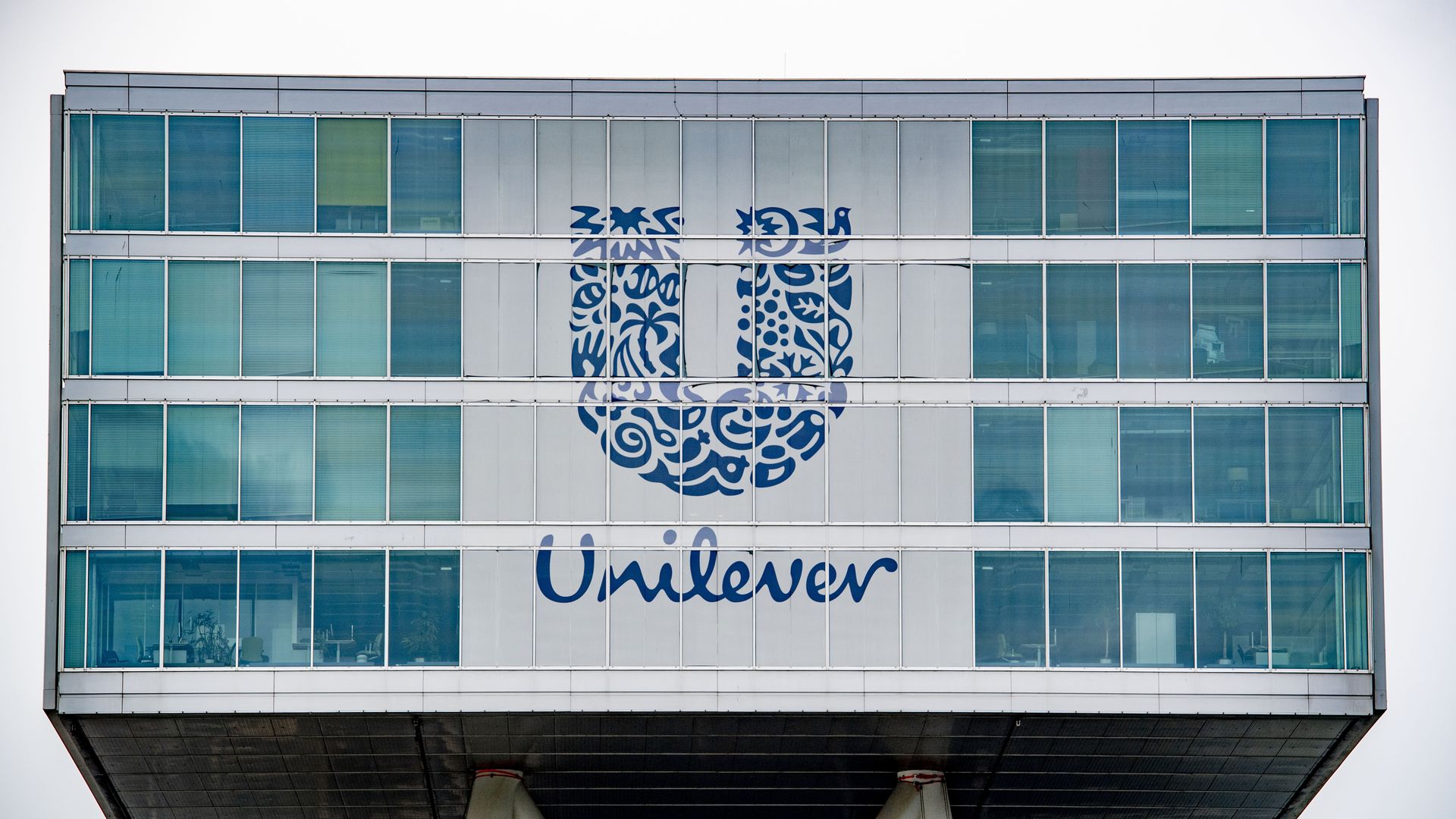Unilever says it will stop buying ads on Facebook, Twitter in 2020
Add Axios as your preferred source to
see more of our stories on Google.

Photo by Robin Utrecht/SOPA Images/LightRocket via Getty Images
Unilever, one of the biggest advertisers in the country, said Friday that it will no longer buy ads on Facebook properties nor on Twitter, citing both companies' policies on content moderation.
Why it matters: It's by far the biggest advertiser to yank its ads from Facebook amid the quickly growing boycott of Facebook and Facebook-owned Instagram. It's also the first brand to extend its boycott to Facebook rival Twitter, signaling trouble to come for that platform.
What they're saying: "Given our Responsibility Framework and the polarized atmosphere in the U.S., we have decided that starting now through at least the end of the year, we will not run brand advertising in social media newsfeed platforms Facebook, Instagram and Twitter in the U.S.," Unilever said in a statement provided to Axios. The statement was first reported by The Wall Street Journal.
- "Continuing to advertise on these platforms at this time would not add value to people and society. We will be monitoring ongoing and will revisit our current position if necessary."
A Facebook spokesperson tells Axios, "We invest billions of dollars each year to keep our community safe and continuously work with outside experts to review and update our policies."
- "We’ve opened ourselves up to a civil rights audit, and we have banned 250 white supremacist organizations from Facebook and Instagram."
- "The investments we have made in AI mean that we find nearly 90% of Hate Speech we action before users report it to us, while a recent EU report found Facebook assessed more hate speech reports in 24 hours than Twitter and YouTube." '
- "We know we have more work to do, and we’ll continue to work with civil rights groups, GARM, and other experts to develop even more tools, technology and policies to continue this fight."
Backstory: The comments come just days after Unilever initially said it wasn't considering a wholesale boycott of Facebook.
- That position changed, however, after one of the company's best-known brands, Ben & Jerry's, joined a growing chorus of brands on Wednesday that said it would begin boycotting Facebook and Facebook-owned Instagram.
State of play: Unilever, for the first three weeks of June, was the 33rd-biggest advertiser on Facebook, according to data from ad tracking firm Pathmatics, spending over $2 million in those three weeks alone.
- Unilever's biggest rival, Procter & Gamble, spent roughly $21 million in that same time period. Procter & Gamble boycotted YouTube in 2018 but hasn't yet indicated that it will boycott these companies.
- On Tuesday, Marc Pritchard, chief brand officer at Procter & Gamble, threatened to pull spending if platforms didn't take "appropriate systemic action" to address hate speech.
Be smart: Unilever's quick reversal speaks to the growing pressure on brands to demand action from tech companies as the boycotts have grown in the past week.
- Prior to Unilever, Verizon was one of the biggest companies to announce it would boycott Facebook, on Thursday.
- Prior to Verizon, dozens of brands ranging from clothing companies to consumer package goods companies had begun boycotting the tech giant.
The big picture: The boycotts are a result of pent-up frustration from lawmakers and marketers over Facebook's content moderation policies, which many feel don't go far enough in curbing hate speech and harmful content online.
- That frustration reached a tipping point during the recent Black Lives Matter protests, as Facebook refused to fact check or moderate posts from President Trump that many argued incited violence against protestors.
- The push for an ad boycott began two weeks ago, when six civil rights groups, including the Anti-Defamation League and the NAACP, began urging marketers to stop buying ads on Facebook, using the hashtag #stophateforprofit, in a bid to pressure the company to take firmer action against hate speech and other harmful material.
Yes, but: These boycotts, while a public relations nightmare for Facebook — especially leading up to the 2020 election — usually don't last too long or have a serious material effect on the companies being boycotted.
- After roughly a year, many of the advertisers that boycotted YouTube in 2018, including Procter & Gamble, had returned.
- And YouTube, is still an advertising powerhouse, bringing in roughly $15 billion annually.
What's next: Unilever says it will maintain its total planned media investment in the U.S. by shifting its budget to other media for the remainder of the year.
